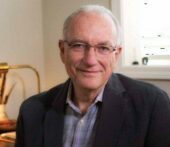Anxiety therapists in Cullman, Alabama AL
We are proud to feature top rated Anxiety therapists in Cullman, AL. We encourage you to review each profile to find your best match.
View nearby cities
Amy L. Holdbrooks, LLC
Counselor/Therapist, MA, NCC, ALC, BSW
Fear is an emotional reaction to a specific, real danger; while anxiety is an excessive and unfocused fear that may be triggered by various stimuli. Anxiety caused by stress may persist long after the trigger is removed.
8 Warning Signs of Anxiety:
1) Feeling nervous, restless or tense.
2) Having a sense of impending danger, panic or doom.
3) Having an increased heart rate.
4) Breathing rapidly (hyperventilation)
5) Sweating.
6) Trembling.
7) Feeling weak or tired.
8) Trouble concentrating or thinking about anything other than the present worry
6 Years Experience
In-Person Near Cullman, AL
Online in Cullman, Alabama
Dr. Allison Williams
Psychologist, Psy.D.
I provide virtual services for those who suffer endlessly at the mercy of their minds: those who spiral, panic, panic about panicking...This may include those who have generalized anxiety, a specific phobia, or who struggle with perfectionism or "Type A" behavior.
8 Years Experience
Online in Cullman, Alabama (Online Only)
Joe Groninga
Psychologist, PsyD, LP
I have been treating anxiety symptoms for many years. Therefore, it's an area in which I have particular experience. You and I will examine the component parts of your symptoms such as emotions, behaviors, and thoughts. We’ll then examine how these parts are connected and how they impact each other. I’ll help you create changes to one or more of these parts to achieve your desired symptom relief. Helping people break free from their anxiety is one of the primary reasons I became a psychologist.
19 Years Experience
Online in Cullman, Alabama
Jayson L. Mystkowski
Psychologist, Ph.D., ABPP
While Cognitive-Behavior Therapy (CBT) is highly effective in the treatment of anxiety disorders (e.g., Panic Disorder, Social Phobia, and Obsessive-Compulsive Disorder), clinicians do see some “return of fear,” or partial relapse, in some patients due to a variety of factors. Over the past two decades, treatment researchers, with whom Dr. Jayson Mystkowski had the pleasure of working with at UCLA for over 10 years, have studied “return of fear” and discovered some key variables that may optimize the effects of learning during CBT for anxiety disorders (Craske et al., 2008).
First, evidence suggests that focusing on tolerating fear versus eliminating fear yields better clinical outcomes in the long term. Namely, teaching clients that fear and anxiety are normal feelings, rather than attempting to “down-regulate” such feelings all the time, is more realistic and seems to engender “hardier” clients. Second, helping clients to generate an expectancy that “scary things will not happen,” is very powerful. To do this, it is important for clinicians to create more complex exposure exercises (i.e., tasks in which a client confronts a stimulus of which they are afraid), using multiple feared stimuli instead of one at a time. Then, the lack of a feared outcome becomes particularly surprising and memorable for a client and fear reduction is more potent. Third, increasing the accessibility and retrievability of non-fear memories learned during treatment are powerful factors in mitigating against a return of fear. Craske and colleagues demonstrated that exposure to variations of a feared stimulus, using a random schedule across multiple contexts or situations, is more effective than exposure to the same stimulus, on a predictable schedule, in an unchanging environment. The former paradigm, it is argued, creates stronger non-fear memories that are easier for a client to access when subsequently confronting feared objects or situations outside of the therapy context, than the later scenario.
In sum, clinicians have long been aware that some fear or anxiety returns following very successful CBT treatment. As mentioned above, there are some clear, empirically supported ways to modify the therapy we provide to further help clients generalize the gains made in therapy sessions to the real world.
20 Years Experience
Online in Cullman, Alabama (Online Only)
Paul W Anderson, PhD
Psychologist, Licensed counseling psychologist, Licensed Addictions counselor
Life can be scary. Feeling overwhelmed and out of control happens for many good reasons but sometimes we are not able to calm ourselves enough to function the way we want to. I can help you reorder how you think, make choices and relate to others so that you regain a sense of control over your anxieties. Fear and stress do not have to run your life.
43 Years Experience
Online in Cullman, Alabama (Online Only)




